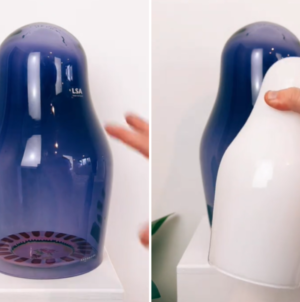-
What sleeping in prison is like: Moldy beds, bright lights, 24/7 noise - 9 mins ago
-
Mystery Thrifted Items Spark Theories Online: ‘Quest for Answers’ - 10 mins ago
-
The Resurrection of Trump’s Support for Pete Hegseth - 38 mins ago
-
Woman Orders Flowers for Sister in Hospital—Hysterics Over What Arrives - 45 mins ago
-
Winds drop, chance of rain as fire danger ebbs in Los Angeles - 51 mins ago
-
Should You Vacation in South Korea? Experts Weigh In Amid Political Unrest - about 1 hour ago
-
Man Found in Syria Appears to Be Missing American - about 1 hour ago
-
Official says L.A. County may defy state order to close juvenile hall - 2 hours ago
-
Will Joe Biden Pardon Hillary Clinton? Bill Clinton Weighs in - 2 hours ago
-
Can Psychedelics Help CEOs Boost Their Leadership Skills? - 2 hours ago
Supreme Court Rules Courts Don’t Have Power in Some Immigration Cases
The Supreme Court ruled on Tuesday that federal courts do not have the authority to review certain discretionary decisions made by immigration agencies, marking a significant shift in judicial oversight of immigration matters.
In a unanimous opinion written by Justice Ketanji Brown Jackson, the High Court ruled that the Department of Homeland Security (DHS) has broad authority to revoke visa petitions without a judicial review, even when the revocation is based on claims of marriage fraud.
The court also found that this authority is beyond the reach of judicial review under a federal law that limits court oversight of certain discretionary decisions.
The case was brought by Amina Bouarfa, a U.S. citizen, who had filed a visa petition for her husband, Ala’a Hamayel, a Palestinian national. The petition was initially approved by U.S. Citizenship and Immigration Services (USCIS), but two years later, the agency issued a Notice of Intent to Revoke the petition.
USCIS cited allegations that Hamayel had previously entered into a sham marriage for the purpose of obtaining immigration benefits—a claim that was backed by statements by Hamayel’s former spouse.
While Bouarfa contested these claims, the agency moved forward with the revocation.
Bouarfa argued that USCIS’s actions were arbitrary and capricious, but the Supreme Court ruled that the authority to revoke visa petitions was squarely within DHS’s discretion.
“The fact that such a determination would have prevented the agency from approving the petition in the first instance, the Board [of Immigration Appeals] found, constituted ‘good and sufficient cause’ for revocation,” the High Court’s ruling states.
The 11th Circuit had previously upheld the dismissal of Bouarfa’s claim, agreeing that the discretionary nature of the decision placed it beyond the scope of judicial review. The Supreme Court affirmed this ruling, resolving a split among lower courts on the question of whether visa revocations could be challenged in federal court.
The ruling could have far-reaching implications for immigrants seeking permanent legal status in the U.S. Critics argue that it reduces accountability and allows immigration agencies to act with minimal oversight. Legal experts say the decision highlights a growing trend of judicial deference to executive branch discretion in immigration matters.

Getty Images
“The Secretary’s discretion may work to the benefit of visa-petition beneficiaries,” the court’s ruling noted, as DHS can choose not to revoke petitions even when the initial approval was erroneous. However, this same discretion, the court added, shields the agency’s decisions from being second-guessed by the courts.
Source link


















